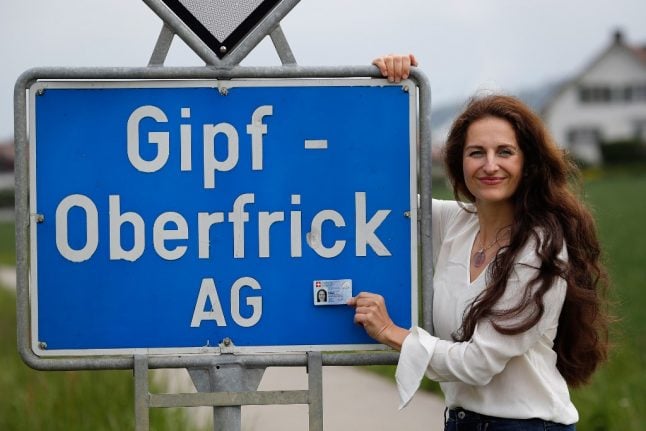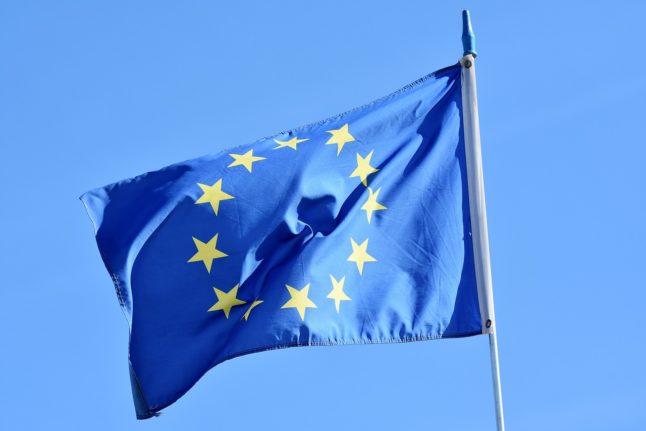The 45-year-old, with her long, flowing dark hair, was born in the Netherlands, but moved to Switzerland when she was just eight years old.
She speaks fluent Swiss German, her children are Swiss and she says she feels Swiss.
Read also: The huge foreigner-sized hole in Swiss democracy
“Switzerland is my home,” she told AFP in a recent interview in the small apartment she shares with her three teenage daughters in the northern village of Gipf-Oberfrick.
So when she finally got around to applying for citizenship back in 2015, she expected the process to be easy.
She was wrong.
As part of Switzerland's famous direct democratic system, some smaller municipalities leave naturalisation decisions up to a vote by the town assembly.
Critics say the system allows for more emotionally-charged and potentially more discriminatory decisions.
When Holten showed up for the vote in the village of around 3,500 inhabitants, her neighbours had turned out in unusually high numbers, to reject her.
Ban cowbells?
The outspoken vegan and animal rights activist had rubbed many in the small, conservative community up the wrong way with her alternative lifestyle and vocal criticism of the ultimate Swiss symbols: the cowbell.
“These bells hurt their ears,” she said, picking up a heavy brass cowbell she had purchased.
She passed the colourfully embroidered strap over her head, and covered her ears as the bell clanged loudly around her neck.
“I don't mind traditions as long as they don't hurt anyone,” said Holten, who also angered many with calls for silencing the village church bells at night.

“I guess I made too much noise for people,” she said.
In the village assembly, many railed against her, booed those who came to her defence and overwhelmingly rejected her citizenship application.
“Emotions ran a bit high,” said Urs Treier, a spokesman for the village administration, which in vain had urged the inhabitants to allow Holten to become Swiss.
Holten appealed the vote to the regional authorities in Aargau Canton, who asked the village assembly to vote again.
The result? Even more people turned out to reject Holten, with the media dubbing her “too annoying” to receive citizenship.
'Painful'
“It was painful,” she acknowledged. “I cried. It was very hard.”
But her persistence paid off. Holten appealed again, and this time the canton overturned the decision, and last year she became Swiss.
The case is among several that have raised questions about the pertinence of applying the direct democratic principal in naturalisation cases.
Across Switzerland, citizenship decisions are first taken locally, then approved at the cantonal level and finally at the federal level.
“The most decisive stage is the municipal level,” Anita Manatschal, a political scientist at Neuchatel University, told AFP.
The vast majority of municipalities leave the decision up to the town administration or a committee, but some, like Gipf-Oberfrick, continue to give all townspeople a say.
A few years ago, a family from Kosovo saw their citizenship request rejected by an assembly in the village of Bubendorf in Basel Canton, with some reportedly arguing they did not “act” Swiss because they often wore tracksuits, and not jeans.
While such decisions raise questions about the legitimacy of the system, experts argue they are increasingly rare.
Andreas Bamert-Rizzo, of the Aargau cantonal authority, told AFP that the canton is asked by municipalities to grant around 2,000 naturalisations annually, but receives only a handful of appeals of local level decisions.
Accusations of discrimination were far more common around the turn of the century, when some Swiss towns permitted referenda using anonymous ballots to determine citizenship requests.
'Outdated'?
That practice was upended in 2003, when the Supreme Court overturned a controversial referendum in the small town of Emmen in Lucerne Canton, which rejected 48 nationality bids — nearly all submitted by people from the former Yugoslavia — finding it discriminatory.
Manatschal pointed to research showing that in the cases prior to the court decision where referenda were used for nationality decisions, the rejection rate on average was 18.4 percent.
That compares to 4.9 percent when the decision was taken by a town assembly and a mere 2.1 percent when a town's executive branch made the call, she said.
“The leeway for discrimination was very problematic until 2003,” she said, stressing, though, that “it seems to be fairer since then.”
“Laws, not random subjective preferences, should decide whether a person should be naturalised or not,” she said.
Holten agrees.
In the year since she became Swiss, she has joined the regional chapter of the Pirate Party, and is vying for a parliamentary seat in cantonal elections in October.
“If I am elected, I will raise this question of access to citizenship,” she said.
“I think communal authorities should decide, and not the inhabitants, who are more likely to let their emotions rule.”



 Please whitelist us to continue reading.
Please whitelist us to continue reading.
Member comments